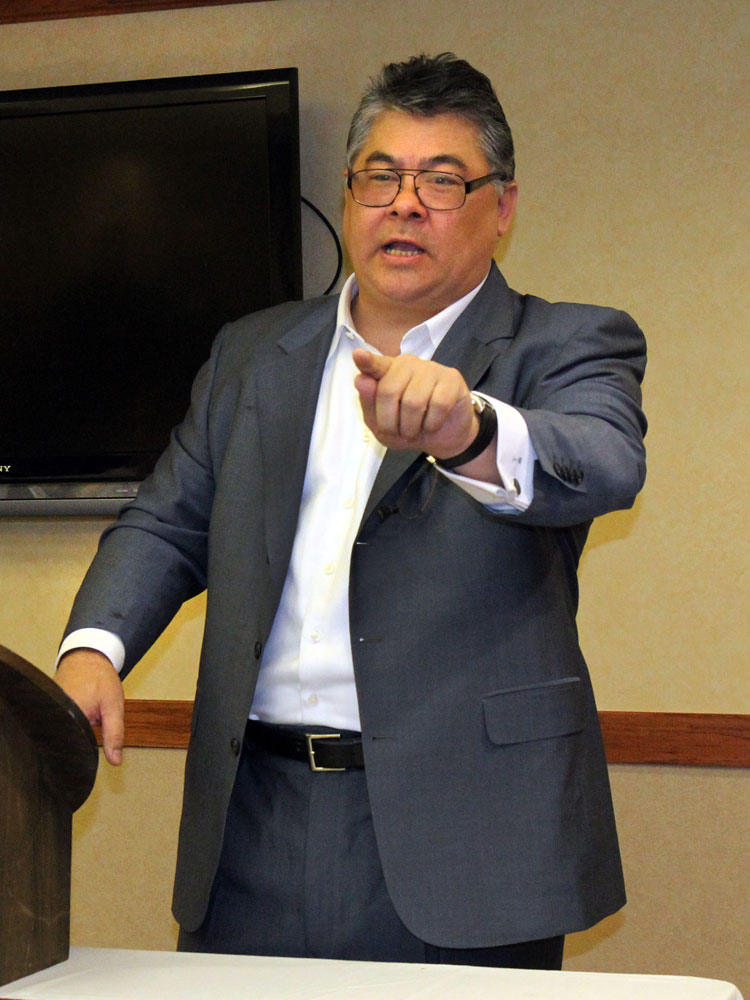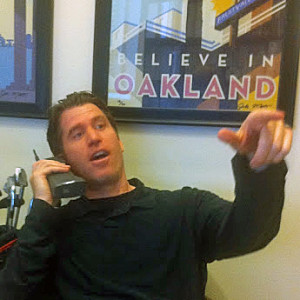Tagami’s Company Seeks to Place High School Next to Parole Office
Mar 13, 2014
Posted in Community, Economic Development, Education/Schools/Youth, Environment
By Ken Epstein
Local business owners are raising concerns about negative impacts of a plan by developer Phil Tagami’s company CCIG to place a charter public high school with nearly 500 students at Oakland Airport Business Park. The proposed school on Edgewater Road is located directly across the street from an Oakland Parole office, which sees 40-50 clients a day.
Leadership Public Schools (LPS), a public charter school with four campuses in Hayward, Richmond, Oakland and San Jose, would use the site for 490 students who currently attend its schools in East Bay cities.
Spokesmen for the project are Soo Zee Park, COO of LPS, and Mark McClure, partner at CCIG, which bought the property with four buildings and plans to renovate one of the buildings for the school. The school would have a basketball court and a soccer field.
The Oakland parole office is part of the State of California Parole and Community Services Division. The school property is at 7700 Edgewater Drive, and the parole office is at 7717 Edgewater.
Under the development plan, which includes no student parking, students would have to be dropped off or take the bus to reach the school – on the same bus line that parolees would take to reach appointments at the parole office.

In addition, the proposed school site is located close to Interstate 880 (approximately 1200 feet) and under the approach flight paths of Oakland International Airport, according to a port report.
Leading opponents of placing the school at the business park are Robert Schwartz, owner of Key Source International (KSI), located next to the proposed school site, and Debbie Hauser, executive director of the Airport Area Business Association.
Schwartz is also an officer of the Oakland Commerce Association.

The proposed site is located in the city’s only business park – across the freeway from the Oakland Coliseum – which was designed for commerce and to attract growing technology and industrial businesses, say opponents.
The space is not appropriate for a school because it would place students in the “midst of properties designated for light industrial, custom manufacturing, logistics, distribution and business services,” according to a statement written by Schwartz and Hauser.
A school at an industrial park would have a “chilling effect on the types of businesses that could locate near an approved school in the Airport Business Park,” they wrote.
In addition, businesses already at the park would have difficulty in the future receiving port zoning permission to expand, especially those nearby existing companies that are engaged “in various forms of manufacturing of plastics, adhesives and polymers” that would potentially expose students to harmful chemicals.
“We’re not against the school. It just doesn’t belong in a business park,” said Schwartz, whose rapidly expanding computer keyboard company has occupied its 1.6 acres since the year 2000.
“It seems like the school is driving the whole process, not the port,” said Hauser.
“There are only intermittent sidewalks,” she said. “Where will young people walk? There’s no street parking. Where will parents park who want to visit the school? This isn’t a place for a school.”
The zoning changes at the business park would eliminate land use regulations that have stood for over 40 years, threatening the existence of the little remaining industrial use land that still exists within the city, Hauser said.
According to port documents, port staff decided to work with the developers on an expedited “alternative” review of the site “after LPS … objected to analyzing the full range of sites that could be used for General Education, and to the requirement that an EIR be prepared because an EIR will take longer than LPS’ proposed construction schedule would allow.”
“LPS has now proposed that the port adopt an alternative form of zoning.”
Although port staff, has expressed reservations about the school, staff agreed to create the “alternative” fast track, to examine whether the site is environmentally safe to use as a school site.
At the request of the school, the office of the port attorney retained special legal counsel to hasten the pace of environmental review, and the cost of this additional staff was paid by the school.
Hauser and Schwartz submitted a public requests on Feb. 22 for documents related to the environmental studies performed. The deadline for receiving the documents has past, and they are still waiting.
The ultimate decision on the school will be made by a vote of the Port Commission.